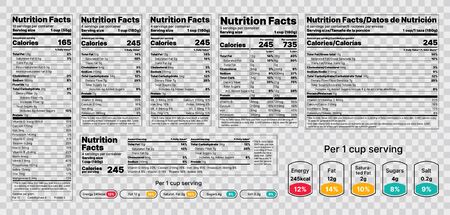Understanding Wholefood Eating: A Mind-Body Perspective
Wholefood eating is more than a dietary trend; it is a profound approach rooted in the principle of living in harmony with nature. Drawing inspiration from both traditional British food culture and ancient mind-body philosophies, wholefood eating emphasises consuming foods as close to their natural state as possible. In the UK, this means embracing local produce—think crisp apples from Kent orchards, earthy root vegetables from Scottish soil, and heritage grains harvested across the countryside.
The practice of wholefood eating aligns beautifully with the concept of balance central to holistic health traditions. Just as British wisdom values the changing seasons and regional bounty, so too does the mind-body perspective honour the interconnectedness between what we eat and how we feel. Choosing seasonal, minimally processed ingredients supports our body’s innate rhythms, nourishing both physical vitality and emotional equilibrium.
Eating close to nature is not only about nutrition; it is about cultivating a mindful relationship with food. The act of selecting local produce at a farmers’ market or preparing traditional recipes handed down through generations can be meditative, grounding us in the present moment. By blending these time-honoured UK practices with an awareness of bodily needs and emotional wellbeing, wholefood eating becomes a holistic ritual—one that fosters lasting health and inner harmony for individuals and families alike.
2. Celebrating British Produce: The Heart of Local Eating
Wholefood eating in the UK flourishes when we embrace the rich tapestry of locally grown, seasonal produce. Rooted in both traditional British diets and the wisdom of East Asian medicine, consuming foods that thrive in our immediate environment helps harmonise the body with nature’s rhythms. By choosing what is fresh and local, we not only enjoy richer flavours but also benefit from produce that retains more nutrients and qi—its vital energy—essential for balanced health.
Nutritional and Energetic Benefits of Seasonal Eating
Seasonal British fruits and vegetables are naturally attuned to our climate and energetic needs throughout the year. In Traditional Chinese Medicine (TCM), eating with the seasons supports our body’s adaptability and resilience. For instance, root vegetables harvested in autumn and winter nourish us during colder months, while berries and greens in spring and summer refresh and detoxify as nature awakens.
Key British Produce by Season
| Season | Typical Local Produce | Health & Energetic Benefits |
|---|---|---|
| Spring | Asparagus, rhubarb, wild garlic | Cleanses liver, revitalises after winter sluggishness |
| Summer | Strawberries, peas, new potatoes | Cools the body, hydrates, boosts vitality |
| Autumn | Apples, blackberries, squash | Nourishes yin, strengthens digestion |
| Winter | Kale, parsnips, leeks | Warms and grounds energy, supports immunity |
The Community Connection: Supporting Local Farmers and Markets
Choosing British-grown wholefoods fosters a sense of community and environmental stewardship. Shopping at farmers’ markets or joining local veg box schemes reduces food miles and carbon footprint while supporting small producers. This mindful approach not only nourishes your body but also strengthens social bonds—core to both traditional British values and holistic wellness philosophies.
Tuning Your Diet to the Land’s Rhythm
Aligning your meals with what grows locally invites you into a deeper relationship with your surroundings. Just as TCM advocates for balance between inner health and outer environment, so too does eating British produce encourage you to move through the seasons with awareness—supporting vitality on both a personal and collective level.

3. Honouring Traditional UK Diets: Wisdom from the Past
The culinary heritage of the UK is a rich tapestry woven from centuries of resourcefulness and respect for nature’s cycles. Rooted in ancient wisdom, traditional British diets centred around hearty root vegetables such as swede, turnip, and parsnip—staples that flourish in the temperate British climate. These foods are not only nourishing but also energetically grounding, echoing the principles of balance found in holistic traditions.
Ancient Grains: The Foundations of Vitality
Before refined flour became commonplace, ancient grains like barley, oats, and spelt formed the backbone of everyday meals. These grains, often slow-cooked into porridges or baked into rustic breads, provide sustained energy and support digestive harmony. Their fibre-rich profiles help regulate the body’s rhythms, aligning with the traditional wisdom that a balanced gut is central to overall wellbeing.
Foraged Foods: Connecting with Nature’s Cycles
Foraging has deep roots in British culture, with wild greens such as nettles, dandelion leaves, and wild garlic gracing many a springtime table. Berries and mushrooms gathered from hedgerows and woodlands add bursts of flavour and vital nutrients. Embracing these seasonal treasures not only nourishes the body but also cultivates a mindful connection with the land—a practice long valued for its grounding effect on both mind and spirit.
The Art of Seasonal Eating: Harmonising Body and Environment
Traditional diets naturally followed the flow of the seasons—warming stews in winter, fresh salads in summer—helping to maintain equilibrium within the body according to external changes. This approach mirrors holistic health philosophies which emphasise adapting one’s diet to harmonise with environmental shifts, supporting resilience and vitality throughout the year.
By honouring these time-tested practices and incorporating local produce into our daily lives, we can rediscover a sense of inner balance and enduring wellness—wisdom passed down through generations that remains profoundly relevant in our modern world.
4. Wholefood Recipes with a British Touch
Wholefood eating in the UK truly comes alive when we bring together the bounty of local ingredients and the wisdom of traditional recipes. Embracing the essence of British cuisine means not only enjoying nourishing meals, but also honouring methods that have supported wellbeing for generations. Below, you’ll discover wholesome, easy-to-follow British recipes that nurture both body and spirit—drawing on whole grains, locally sourced vegetables, and time-honoured preparation techniques.
Classic Porridge with Modern Flair
Porridge is a cherished staple across Britain, rooted in centuries-old practices. Start with organic Scottish oats, simmered gently in water or oat milk, and finish with a sprinkle of toasted seeds or a handful of Kentish berries. This simple dish supports digestion and balances energy according to the principles of yin-yang harmony.
Hearty Vegetable Stew: Rooted in Local Fields
British stews are ideal for incorporating an array of seasonal veg. Try a medley of carrots, swede, parsnips, and leeks slow-cooked with pearl barley—a whole grain rich in fibre and minerals. A touch of fresh thyme or bay leaf enhances flavour while supporting your bodys natural rhythms.
Traditional Wholemeal Soda Bread
This quick bread requires no yeast and captures the rustic charm of rural Britain. Using stoneground wholemeal flour, buttermilk, and a pinch of sea salt, it’s ready in under an hour—perfect for pairing with homemade soups or spreading with raw honey from local apiaries.
| Recipe | Main Ingredients | Wellness Benefits |
|---|---|---|
| Oat Porridge | Scottish oats, oat milk, berries | Sustained energy; digestive support |
| Vegetable Stew | Carrots, parsnips, pearl barley | Rich in fibre; grounding warmth |
| Soda Bread | Wholemeal flour, buttermilk | Nourishing grains; gut health |
A Mindful Approach to Preparation
In keeping with holistic traditions, take time to prepare meals mindfully—chop vegetables with intention and cook slowly to maximise nourishment. By reconnecting with these British wholefood traditions, you cultivate harmony between body and mind while celebrating the land’s natural gifts.
5. Mindful Eating and Seasonal Rhythm
Cultivating Mindfulness at the Table
Mindful eating is more than a passing trend—it is an ancient practice rooted in both Eastern philosophy and traditional British wisdom. By slowing down and truly savouring each bite, we engage all our senses, helping to regulate digestion, balance emotions, and foster deeper appreciation for the food on our plates. In the context of wholefood eating in the UK, this means pausing to notice the aroma of freshly baked wholemeal bread or the vibrant colours of a summer berry salad. To begin, try setting aside electronic devices during meals, chewing slowly, and expressing gratitude for the local farmers and producers who have nurtured your food.
Honouring the Seasonal Cycle
The UK’s changing seasons offer a natural rhythm for healthy eating. From spring’s tender asparagus and wild garlic to autumn’s root vegetables and apples, nature provides what our bodies need at precisely the right time. Traditional diets across Britain have long embraced this principle—think of hearty stews in winter or light salads in summer. Tuning into these cycles aligns with both holistic health principles and the wisdom of Chinese medicine, which encourages harmony between body and environment. Eating seasonally not only enhances flavour and nutrition but also supports local growers and reduces your carbon footprint.
Practical Steps for Seasonal Mindfulness
- Shop at local farmers’ markets or join a community-supported agriculture (CSA) scheme to discover what’s fresh each week.
- Create weekly meal plans based on seasonal availability—try leek and potato soup in early spring or blackberry crumble in late summer.
- Keep a food journal to reflect on how different foods make you feel throughout the year, noting any shifts in mood or energy that coincide with seasonal changes.
Bringing it All Together
By integrating mindful eating practices with an awareness of Britain’s seasonal bounty, you create a harmonious relationship between your diet, your body, and your environment. This gentle attunement lays the foundation for lifelong wellbeing—an approach that honours both modern nutritional science and timeless traditions.
6. Practical Tips: Sourcing, Cooking, and Living Wholefood in the UK
Where to Buy Wholefoods Locally
Embracing wholefood eating in the UK starts with sourcing quality ingredients. Seek out local farmers’ markets found in most towns and cities, such as Borough Market in London or Manchester’s Arndale Market, where fresh produce reflects the seasons. Many British supermarkets now have dedicated organic and wholefood sections; look for trusted certifications like Soil Association Organic. Community-supported agriculture (CSA) schemes, farm shops, and independent greengrocers are also excellent options for supporting local growers and enjoying nutrient-rich foods.
Sustainable Eating on a Budget
Wholefood living need not be costly. Focus on buying produce that is in season—British apples in autumn, root vegetables in winter, asparagus in spring—which tends to be both affordable and flavourful. Bulk-buying staples such as oats, lentils, or barley from zero-waste stores saves money and reduces packaging waste. Plan meals around versatile ingredients like potatoes, cabbage, and beans which feature strongly in traditional British diets. Reduce food waste by creatively using leftovers in soups or stews, echoing the resourcefulness of generations past.
Cooking with a Holistic Touch
Integrating holistic principles into your cooking honours both body and mind. Draw inspiration from time-honoured British recipes—think hearty vegetable broths, porridge with locally-sourced berries, or slow-cooked stews with fresh herbs. Prioritise gentle cooking methods such as steaming or slow braising to preserve natural flavours and nutrients, aligning with traditional wisdom akin to Eastern dietary therapy. Mindful preparation—cooking with intention and gratitude—can transform even simple meals into moments of nourishment and balance.
Everyday Integration: A Wholefood Lifestyle
Adopting a wholefood lifestyle extends beyond your plate. Grow herbs like mint or thyme on your windowsill for easy access to fresh flavour and wellness benefits rooted in British tradition. Brew herbal teas from nettle or elderflower for gentle support of the bodys natural harmony. Engage family and friends by preparing meals together; sharing food deepens social bonds, an essential aspect of holistic well-being. Embrace outdoor movement—whether gardening or rambling through the countryside—to support digestion and foster inner calm.
A Modern Take on Traditional Wisdom
Living wholefood in the UK means weaving together local heritage, mindful practices, and sustainable choices. By sourcing seasonal produce, embracing budget-friendly habits, and infusing daily life with holistic intent, you honour both your health and the land beneath your feet—the true spirit of wholefood living in Britain.

